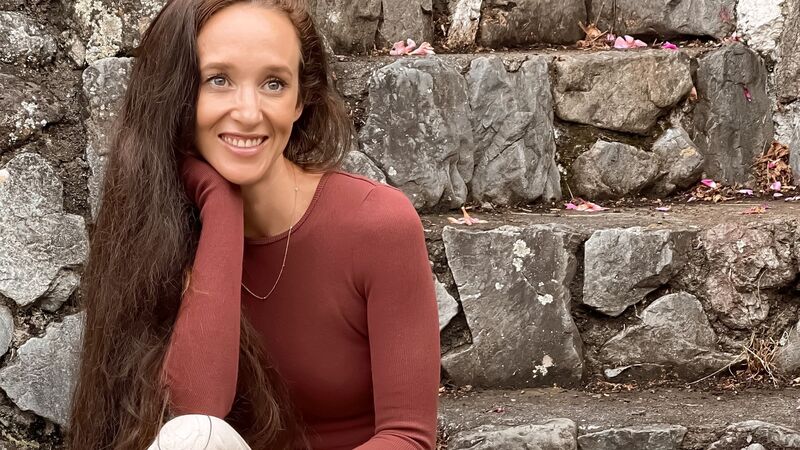You are viewing your 1 free article this month. Login to read more articles.
The Man Booker judges explain their choice
The much-talked about issue of diversity in the selection process for this year's Man Booker Prize was described as "a slightly academic premise" by the prize's literary director during this morning's press conference, as its judges unveiled a shortlist comprising British, American and Canadian authors, of whom half are of Black, Asian and minority ethnic heritage.
Paul Beatty, Deborah Levy, Graeme Macrae Burnet, Ottessa Moshfegh, David Szalay and Madeleine Thien were praised by judges for the "high quality" of their work, which both the prize's literary director Gaby Wood and chair of the judges Amanda Foreman (pictured) stressed always had to come first.
The prize longlist had been criticised this year for a lack of diversity with the Guardian dubbing this a "disappointment".
But questioned on the issue of national diversity at this morning's press conference, Foreman, a biographer and historian, commented: "As a panel we respond to quality first. Within quality we are very eager to be able to experience a diverse range of subjects and voices and regions, you name it. You base your judging on what you get. We can't choose what we get, but I assure you once it is in our hot little hands, then we are full of energy, and integrity, and passion for the books we are judging. So what we have we are very pleased with. I can't comment on what we don't have."
Wood said: "One of the benefits of including people of all nationalities is not to have any snobbery about nationality." Asked further whether she would have "preferred" a more diverse selection, Wood said: "Not really because you have to choose them individually."
"Would everyone have preferred more diverse submissions, of high quality, not just for the sake of diversity? Very possibly. But we're judging quality first so it's a slightly academic premise, I think," she said.
Overriding attributes the judges were looking for include "courage" and "experimentation". Foreman said: "[Experimentation] is one of our criteria, as is being innovative, being bold, courageous, a willingness to take risks, and being novel within the novel."
Beatty's novel The Sellout (Oneworld), offering a "bitterly ironic" portrait of a fictionalised LA, was branded "shocking and unexpectedly funny novel" that was "an immediate hit with the judges".
"The judges were in awe of the quality of Beatty's writing, and its eccentric Swiftian satire and Prioresque observational comedy, employed to drag the unendurable status quo of present-day US race relations to an absurd disconclusion, taking political correctness and self loathing hostage on route," said actor and judge Olivia Williams on behalf of the panel. "With enviable tonal dexterity and fearless wit, he confounds us with scenarios I would hesitate to summarise, so toxic are the taboos that he explodes."
Also about "toxicity", according to the judges, is Hot Milk by Deborah Levy (Viking), about the relationship between an "emotionally abused" young woman, Sophia, and her hypochondriac mother, Rose. A quest to restore her mother's ability to walk plays out across a long hot summer in Spain, where the waters are filled with medusas, and the novel's protagonist embarks on her own journey of self-discovery.
"Modern tropes and ancient mythology abound Levy's deftly crafted and profoundly intellectual examination of familial alienation," said Foreman. "Knowledge is the only weapon that will set you through in Hot Milk, and self knowledge in particular. But it will sting in the process," she added.
Burnett's His Bloody Project - published by Contraband, in what added up to three independent publishers on a shortlist of six - was meanwhile praised for its "brilliance" in the author's ability to "render the familiar unfamiliar and to make the unsaid as clear as day". Of the novel - vehemently not to be categorised as crime fiction, according to judge David Szalay - Foreman said: "Nothing is as it seems in this deeply unsettling and deeply upsetting novel. It's a story of everyday injustice in its brutality and the novel is awash with lies and yet each of these lies - lies the characters tell themselves, the lies characters tell others - point to a larger truth that we are all born in blood and for some of us there is no escape."
Eileen (Jonathan Cape), about a woman trapped by circumstances - daughter to an alcoholic ex-cop father and a dead mother, with a distant arrogant sibling - impressed the judges in Moshfegh's execution of the first person narrative.
"Ottessa Moshfegh has a supremely good ear for what Eileen's voice has about it, a subdued note of desperation that at any time seems it might break into a cry of anguish or of rage. There's a sense of menace that lies at all times just below the surface," said David Harsent on behalf of the judges.
Also published by Jonathan Cape, All That Man was judged, "A wry important and timely novel about masculinity and the state of contemporary Europe: a post-Brexit novel for our times". Jon Day added: "The pleasures of All that Man Is are emergent, and cumulative, they're subtle and in the end unforgettable."
Another "important book", rounding off the list, was Do Not Say We Have Nothing (Granta). The book about western music in China, the musicians who played and composed it and the risks they were willing to take to do so, was praised Abdulrazak Gurnah for bearing witness to "the cruelties that are part of revolutionary change" while also a celebration of "the quiet resourcefulness of the human spirit".


















